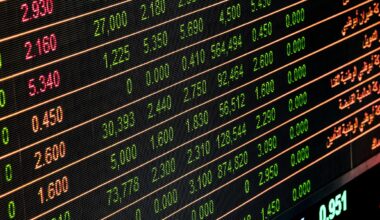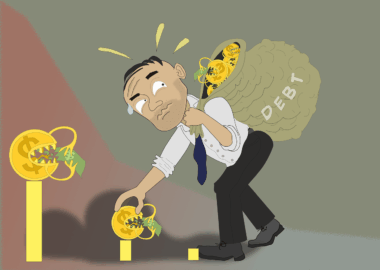The Effects of Currency Manipulation on International Trade
Currency manipulation is a practice by which countries deliberately devalue their currency to gain an unfair advantage in international trade. This devaluation makes exports cheaper and imports more expensive, directly affecting trade balances. When a nation engages in this practice, it can lead to a series of repercussions both domestically and internationally. For instance, countries that manipulate their currency can experience a surge in demand for their goods abroad while simultaneously facing inflated costs for foreign products. This phenomenon distorts competition, leading to trade imbalances, which can spark tensions between trading partners. Besides economic factors, currency manipulation introduces complexities into international relations, making trade negotiations more challenging. It creates an environment where countries may retaliate with tariffs or other trade barriers, further complicating global commerce. Effective international economic policies must take these manipulations into account to ensure fair trade practices. Governments and policy-making bodies should strive to establish standards that prevent unfair advantages while promoting a level playing field for all nations involved in global trade.
The consequences of currency manipulation extend beyond mere trade balances; they can impact job creation and economic growth within the manipulating nation.
Impact on Employment and Growth
When a country devalues its currency, its exports become more attractive internationally, potentially boosting local industry. This surge can lead to increased production and, consequently, create new jobs within export-focused sectors. However, the flipside is a negative impact on domestic consumers, who face higher costs for imported goods. The situation creates a consumer paradox: while certain industries thrive, the broader population suffers from decreased purchasing power. Jobs created in export sectors may not compensate for losses felt elsewhere within the economy. Moreover, long-term currency manipulation can distort investment flows, leading to volatility in the domestic market. As global investors seek stability, the unpredictable nature caused by a manipulated currency can deter foreign direct investment. Ultimately, a cycle can emerge where labor demand fluctuates, making it difficult for labor markets to stabilize. Policymakers must address these contradictions to implement coherent strategies that can result in sustainable economic growth. They must remain vigilant against such practices and hold manipulative countries accountable to restore balance to international trade.
In international economics, one significant concern arises from currency manipulation’s effect on developing countries.
Effects on Developing Economies
Developing countries are often victims of currency manipulation due to their limited economic resources and dependency on exports. When a larger, more developed nation engages in devaluation tactics, it can disproportionately harm developing economies by making their products less competitive. For instance, if a developed country lowers its currency, goods from developing countries become more expensive, resulting in lower sales volumes and reduced foreign exchange earnings. This lack of competitiveness stifles local economies and perpetuates cycles of poverty. Furthermore, economic aid and investments may dry up as foreign investors perceive higher risks in manipulated environments. Developing nations may struggle to formulate effective responses to such aggressive tactics, leading to detrimental consequences for growth. Additionally, reliance on specific exports makes these countries vulnerable when larger forces shape market dynamics. Strengthening international regulations against currency manipulation can offer a protective framework for developing nations. Global organizations must foster conversations that prioritize fairness and equity in trade, ensuring that the voices of disadvantaged countries are heard in negotiations.
Consequently, trade agreements must evolve to address the challenges posed by currency manipulation.
Trade Agreements and Currency Regulations
Modern trade agreements increasingly incorporate clauses related to currency manipulation to promote fair practices between nations. These clauses aim to establish frameworks that discourage unfair devaluation tactics and foster transparent currency policies. For effective implementation, nations need to engage in clear dialogue regarding their monetary policies and the potential repercussions on trade. Enhanced cooperation through trade partnerships is essential to monitor currency practices actively. Countries can work toward establishing shared standards that prevent currency manipulation while bolstering confidence in trading relationships. As global trade fluctuates due to unforeseen events, mutual commitments are vital for resilience. An open discussion involving key stakeholders will enable better monitoring of currencies and cultivate greater trust between trading partners. When nations come together to address such critical components of international finance, the potential for growth increases for all involved. By establishing rules that deter manipulation, governments can pave the way for fair trade, benefiting economies worldwide. The integration of these frameworks can potentially lead to stronger and more sustainable growth across global markets.
Ultimately, understanding currency manipulation is crucial for building a stable global economic framework.





